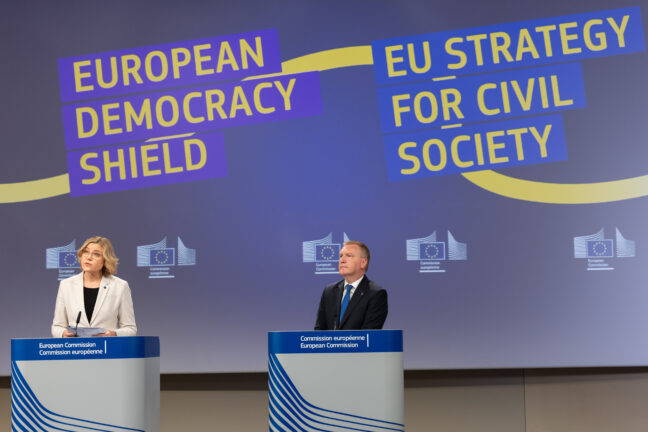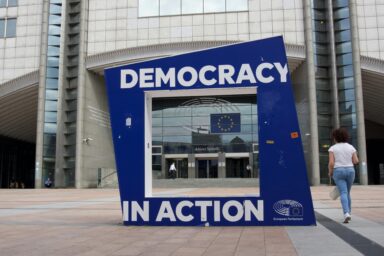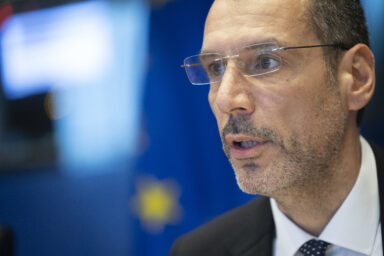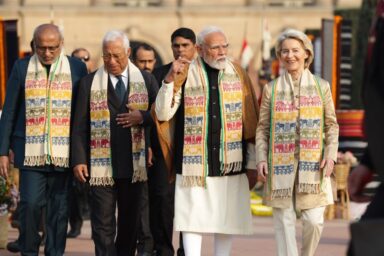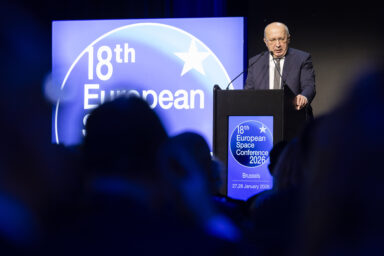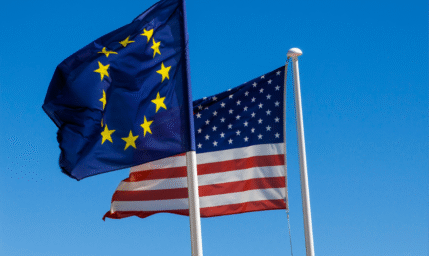The European Commission on Wednesday, 12 November, unveiled the details of two initiatives aimed at reinforcing democracy across the Union: the European Democracy Shield and the EU Strategy for Civil Society. Both projects are designed to strengthen democratic resilience in an era where disinformation, artificial intelligence, and foreign interference are big concerns. The actions had been previously mentioned in this year’s State of the Union address.
For Commission President Ursula von der Leyen, the European Democracy Shield “will reinforce the core elements that allow citizens to live our shared democratic values every day”. It sets out concrete measures to protect free speech, independent media, resilient institutions and civic participation amid rising threats to EU values.
A European shield against manipulation
The European Democracy Shield focuses on three pillars: protecting the integrity of the information space, strengthening institutions and media, and building societal resilience.
At its centre is the European Centre for Democratic Resilience. It will be run by Justice Commissioner Michael McGrath, and link EU institutions, member states, and civil society. The Centre will pool expertise, share data, and develop early warning systems to anticipate and respond to information manipulation by strengthening cooperation with the European External Action Service’s Rapid Alert System. It will also host a Stakeholder Platform of fact-checkers, researchers, and media organisations.
The Shield also introduces a Digital Services Act (DSA) incident and crisis protocol to ensure swift responses to large-scale disinformation operations. Major platforms, including Google, Microsoft, Meta, TikTok and X, will be expected to step up compliance with the Code of Conduct on Disinformation. The main concerns revolve around detecting and labelling AI-generated content and cutting off financial incentives for disinformation.
You might be interested
Other measures include new guidance on the responsible use of AI in elections, an updated DSA Elections Toolkit, and a Media Resilience Programme to bolster independent journalism and review media sustainability under the Audiovisual Media Services Directive. The Commission also pointed to the growing role of influencers in shaping online political discourse. A voluntary network of digital creators will be set up to raise awareness of EU transparency rules and to promote responsible participation in electoral campaigns
Our proposals are about more than defence. They are about empowerment. We want every citizen, every voice, to know that Europe stands with them. – Henna Virkkunen, Executive Vice-President for Tech Sovereignty, Security and Democracy
“Our proposals are about more than defence”, said Henna Virkkunen, Executive Vice-President for Tech Sovereignty, Security and Democracy. “They are about empowerment. We want every citizen, every voice, to know that Europe stands with them”.
Civil society: the engine of resilience
Running in parallel is the EU Strategy for Civil Society. It aims to strengthen civil society organisations as vital partners in governance. The Commission said civil society is “at the core of our democracies”. It enables citizen participation, transparency and accountability, and defends EU values such as equality, democracy and the rule of law.
The new strategy will establish a Civil Society Platform by 2026. The goal is to facilitate structured dialogue with organisations working on democracy, rights and equality, supported by a dedicated online hub on civic space to provide access to tools, funding and protection mechanisms.
To bolster financial independence, the next EU budget (2028–2034) proposes €9bn, under the AgoraEU programme, to promote democracy, cultural diversity, media freedom, and civic engagement. The Commission also plans to strengthen links between civil society, private donors and pro bono legal experts to improve long-term support. In particular, for human rights defenders facing intimidation or legal threats.
NGOs: Let us go further
Press freedom and NGO groups broadly welcomed the initiatives. However, they called for firmer regulation to ensure reliable information reaches citizens. Thibaut Bruttin, Director General of Reporters Without Borders (RSF), warned that the EU must go further.
It’s time to take back control of the online space. – Thibaut Bruttin, Director General of Reporters Without Borders
“We will only be able to counter these threats if the reliable information produced actually reaches citizens”, Mr Bruttin said. “It’s time to take back control of the online space, ensuring the algorithms of social media platforms and AI assistants are designed to uphold democratic guarantees by promoting trustworthy news sources”.
RSF urged the EU to introduce a digital tax on major platforms to fund public-interest journalism and require social media algorithms to prioritise credible news sources by default.
Now it is Parliament’s turn
The Democracy Shield Committee, chaired by Nathalie Loiseau (Renew/FRA), will begin its review of the communication later this month. “Now more than ever, the European Union needs to address the growing challenges to democratic processes posed by malicious interference,” Ms Loiseau said. “This communication is a good and necessary first step towards a democratically resilient Union,” she added.
Commissioner Michael McGrath, responsible for Democracy, Justice, the Rule of Law and Consumer Protection, will brief MEPs on 24 November.
